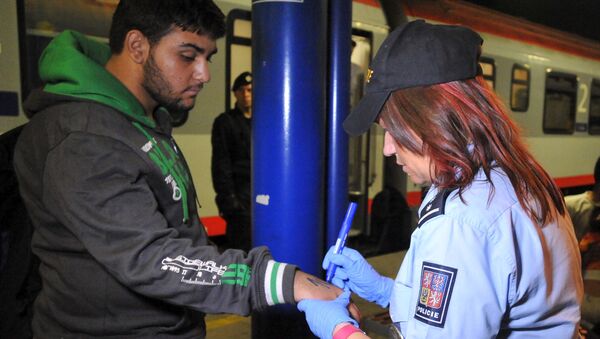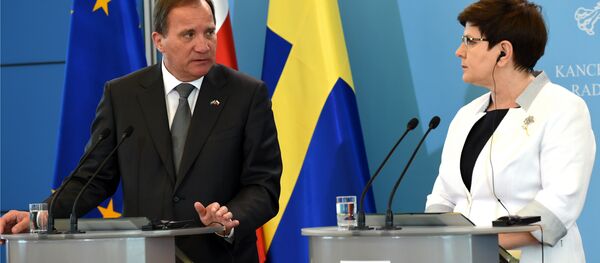PRAGUE (Sputnik) – In September 2015, the heads of the EU Interior Ministries adopted the European Commission’s proposal on the distribution of 160,000 undocumented migrants, staying on the territory of Italy and Greece, among the EU countries, under the quota plan. The Czech Republic, Hungary and Poland opposed the proposal. On June 14, the European Commission announced the launch of infringement procedures against the three aforementioned states.
"Now I have better and deeper understanding of the Czech side’s restrained conduct with regard to the obligatory quotas on accepting migrants," Gabriel said in the follow-up to talks with Czech Foreign Minister Lubomir Zaoralek, as quoted by the Czech iDNES news portal.
Gabriel noted that he discussed the migration issue with Zaoralek although both ministers maintained their positions.
Gabriel also admitted that he realized how deeply the aforementioned problem is entrenched in Czech national sovereignty issues.
In addition, Gabriel raised the issue of the steps that may be taken in the near decades to influence the flows of refugees and stressed that while the European states argue on the number of accepted migrants, more and more people in Africa flee the countries of origin to escape from poor living conditions.
The world presently faces multiple conflicts forcing people to flee their countries of origin or seek asylum within the national borders with the global refugee crisis becoming acute two years ago. Syria, Iraq, Congo, Nigeria and South Sudan have become the major hotspots.


